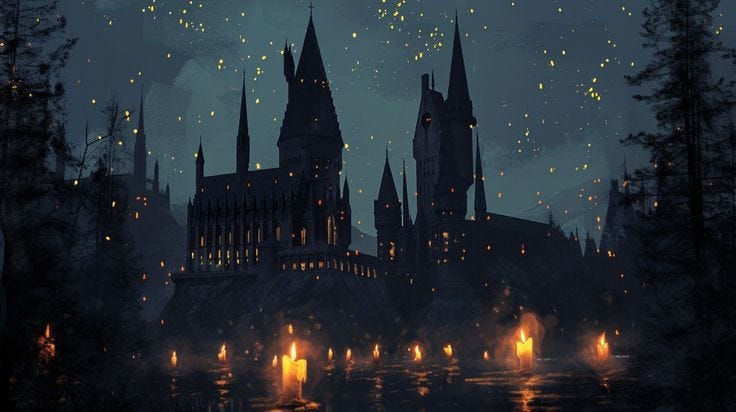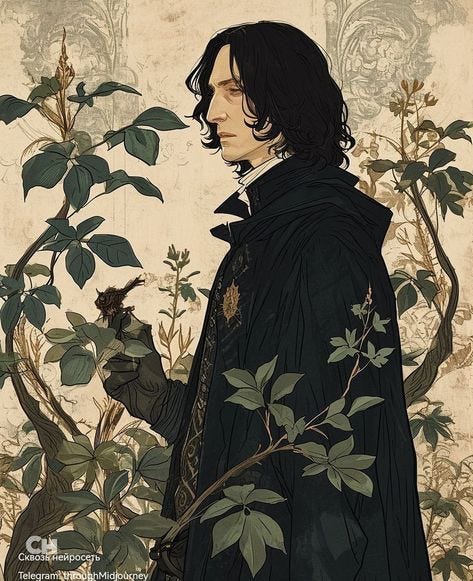Stories have always been an integral part of human culture. Whether told around a campfire, etched into cave walls, or shared through the pages of a book, storytelling has been the thread that connects us all.
Recently, I found myself immersed in one of the most beloved stories of all time—Harry Potter. Over two weeks, I relived every spell, every duel, and every heart-stopping moment of the seven books. If I were to describe the series in a single sentence, I might call it "the adventures of a teenage wizard."
But that wouldn’t do it justice.
The Harry Potter series isn’t just a story about magic; it’s about friendship, resilience, sacrifice, and the power of love. It’s about ordinary people facing extraordinary circumstances. No wonder it has captured the hearts of over 600 million readers worldwide (Source: Wizarding World).
So, what makes this series—and storytelling in general—so magical?
- narration
A strong narrator can make or break a story. Think of it this way: even the most fascinating events can lose their impact if told in a dry or unengaging way.
To keep an audience hooked, storytellers must use techniques like:
Descriptive language: Paint vivid pictures in the reader’s mind. Instead of saying, “The castle was dark,” describe the shadows creeping along the stone walls or the cold air that seemed to whisper secrets.
Varied pacing: Speed up during moments of action and slow down during emotional or reflective scenes. This creates rhythm and keeps readers engaged.
Suspense and humour: Both are invaluable tools for holding attention. Whether it’s a cliffhanger or a well-timed joke, these elements keep the audience invested.
- mood
A story’s setting isn’t just a backdrop—it’s a living, breathing element that shapes the narrative. A well-crafted atmosphere immerses the audience and sets the tone.
In Harry Potter, for example, each setting is vividly detailed. From the bustling warmth of the Burrow to the cold, oppressive halls of the Ministry of Magic, J.K. Rowling uses atmosphere to evoke emotions and heighten the story’s impact.
- characters
Gone are the days of perfect heroes and one-dimensional villains. Modern audiences crave complexity. We’re drawn to characters who are flawed, conflicted, and morally grey because they feel more real.
Take Severus Snape, for example. Love him or hate him, his layered personality and tragic backstory make him unforgettable. He challenges the reader’s perspective, forcing us to question ideas of loyalty, redemption, and morality.
Creating relatable characters involves giving them depth—dreams, fears, motivations, and contradictions. These are the things that make characters leap off the page and into our hearts.
- plot
The plot is the backbone of any story, but a truly great plot is driven by meaningful themes. Themes provide the emotional and intellectual core of a narrative, giving it depth and significance.
In Harry Potter, the overarching themes—love, courage, sacrifice, and the triumph of good over evil—resonate universally. These themes are woven seamlessly into the plot, creating a story that is not only entertaining but also deeply meaningful.
- emotions
At its core, storytelling is about connection. The best stories evoke strong emotions—joy, fear, anger, sadness—and make the audience feel something.
In Harry Potter, moments of emotional resonance abound. The bittersweet loss of loved ones, the thrill of triumph, and the pain of betrayal are all explored in ways that feel authentic and relatable. These moments stay with readers long after they close the book, creating a lasting impact.
So is this why Harry Potter endures?
The Harry Potter series is a masterclass in storytelling. It excels in all the elements mentioned above, creating a narrative that is as immersive as it is impactful.
What sets it apart, however, is its ability to transport readers to another world—a world that feels real and alive. From its richly detailed settings to its unforgettable characters, the series invites readers to lose themselves in its magic.
For me, Harry Potter is more than a series of books. It’s a portal to a warm, nostalgic world filled with lessons, laughter, and love. It’s a reminder that even in the darkest times, light can be found if we choose to look for it.





no because the way i was OBSESSED with the wizarding world and how it was created through words